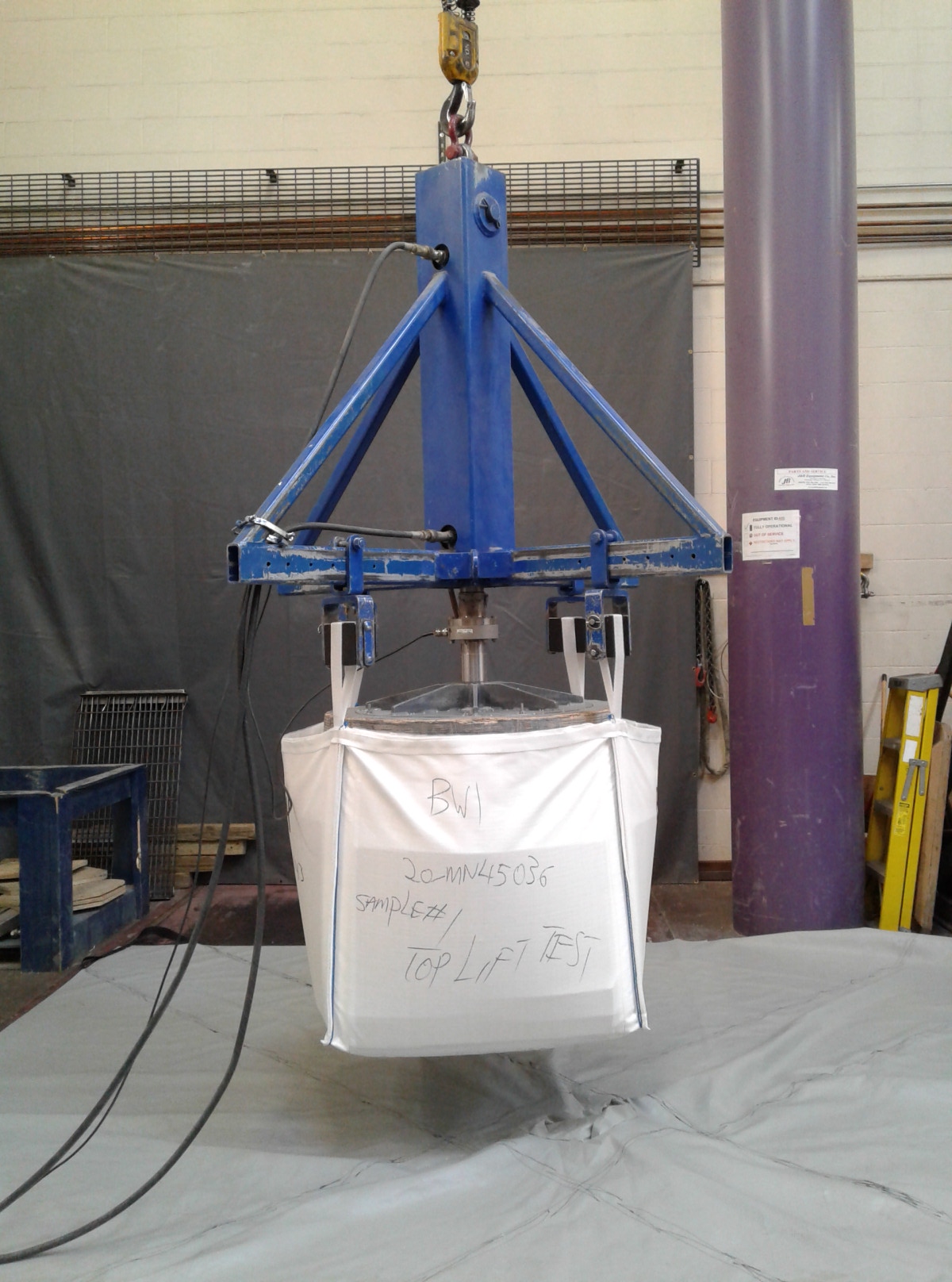Flexible intermediate bulk containers (FIBCs) are known by various names in different industries and geographic locations. Some common names include Super Sack, Bulk Bag, Tote Bag, Big Bag, Grain Bag, MegaBag™, Tonne Bag, Builders Bag, and more. It’s interesting to note that in Quebec, FIBCs are referred to as “Sacs Pour Vrac,” which translates to Bags for Bulk or Bulk Bag.
One question that we often encounter is whether Bulk Bags (FIBCs) can be reused. To shed light on this matter, we believe it would be helpful to provide additional information.
The answer to this question depends on the type of FIBC. A single-trip FIBC is designed for one-time use only. It is filled, transported, discharged, and ideally recycled. FIBCs of this category should not be reused or reconditioned. The majority of FIBCs sold in Canada fall into the single-trip category, with a safety factor of 5:1. Unfortunately, there are unscrupulous sellers who specialize in brokering used FIBCs. It is crucial to exercise caution when dealing with such sellers, as they cannot guarantee the condition or quality of the FIBCs they sell. Some of these bags may have even contained hazardous materials. Below is an example of single-trip FIBC, a popular choice among BWI customers.

Standard-duty reusable FIBCs and heavy-duty reusable FIBCs can be reused. Standard-duty reusable FIBCs are designed for a limited number of fillings and discharges, with a safety factor of 6:1. UN Rated FIBCs which are common in industries that handle dangerous goods and hazardous materials like asbestos, mining waste, and chemicals, are also considered standard-duty reusable FIBCs. BWI stocks and manufactures standard-duty reusable FIBCs in Calgary, AB, which are shipped across North America.
Below is an image of a BWI FIBC undergoing top-lift testing to ensure it meets BWI’s stringent quality standards and the minimum required safety factor. The top-lift test applies 5, 6, or 8 times the Safe Working Load (SWL) to the FIBC to ensure it meets the applicable ISO21898 standards.

The heaviest-duty FIBC classification is the heavy-duty reusable FIBC, which has a safety factor of 8:1. These FIBCs are designed for multiple fillings and discharges and can be both factory and field repairable. The tensile strength across a repair should be at least as great as that of the original bag. Heavy-duty reusable FIBCs are not common and are typically specified when customers have very specific requirements. They are often used in closed-loop environments where FIBCs are used internally.
Can the Safe Working Load of an FIBC be decreased to increase its Safety Factor? Although this question doesn’t arise frequently, it has been asked in the past. For example, a customer wanted to know if they could purchase a single-trip FIBC with a Safe Working Load of 1500kg, 5:1 Safety Factor, and then classify it as a standard-duty reusable FIBC with a 1250kg Safe Working Load and 6:1 Safety Factor. It may seem like simple math, but it’s not that straightforward because different types of FIBCs have varying test loads and testing cycles. We’ve outlined the testing standards below according to ISO 21898 standards.
-
Heavy-duty reusable FIBC types: 70 cycles at a test load of 6 × SWL and a final cycle at a test load of 8 × SWL.
-
Standard-duty reusable FIBC types: 70 cycles at a test load of 4 × SWL and a final cycle at a test load of 6 × SWL.
-
Single-trip FIBC types: 30 cycles at a test load of 2 × SWL and a final cycle at a test load of 5 × SWL.
At BWI, the safety of our customers is our top priority. While we understand that some individuals may choose to reuse single-trip FIBCs, it poses risks and can lead to potential losses, such as lost product or legal action. We strongly discourage purchasing used single-trip FIBCs, as they can become liabilities for your business and the general public. For instance, imagine someone selling a used grain bag at a local marketplace. You might be tempted by the lower price and think you can save a few dollars by not buying new. However, in practice, things may not go according to plan. You fill the bag, load it onto your customer’s truck or trailer, and then a lifting loop tears, causing valuable product to spill on the ground and in the customer’s equipment. Was the savings worth it?
Thank you for reading!
In conclusion, if you are looking for FIBCs or Bulk Bags, no matter what size, classification, or style, please contact BWI at sales@bwi-1.com or 403-720-6229 to discuss your individual needs, packaging requirements, and regulatory requirements. Our friendly sales team would be delighted to assist you with any of your bulk packaging or covering needs!
References: ISO 21898-2004 Standard, Packaging — Flexible intermediate bulk containers (FIBCs) for non-dangerous goods.


Recent Comments